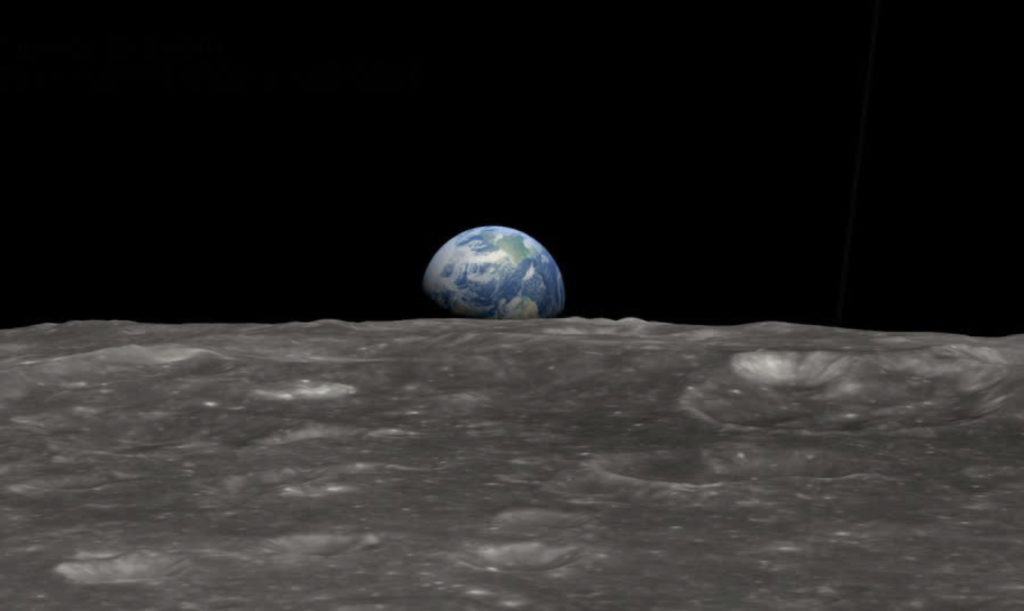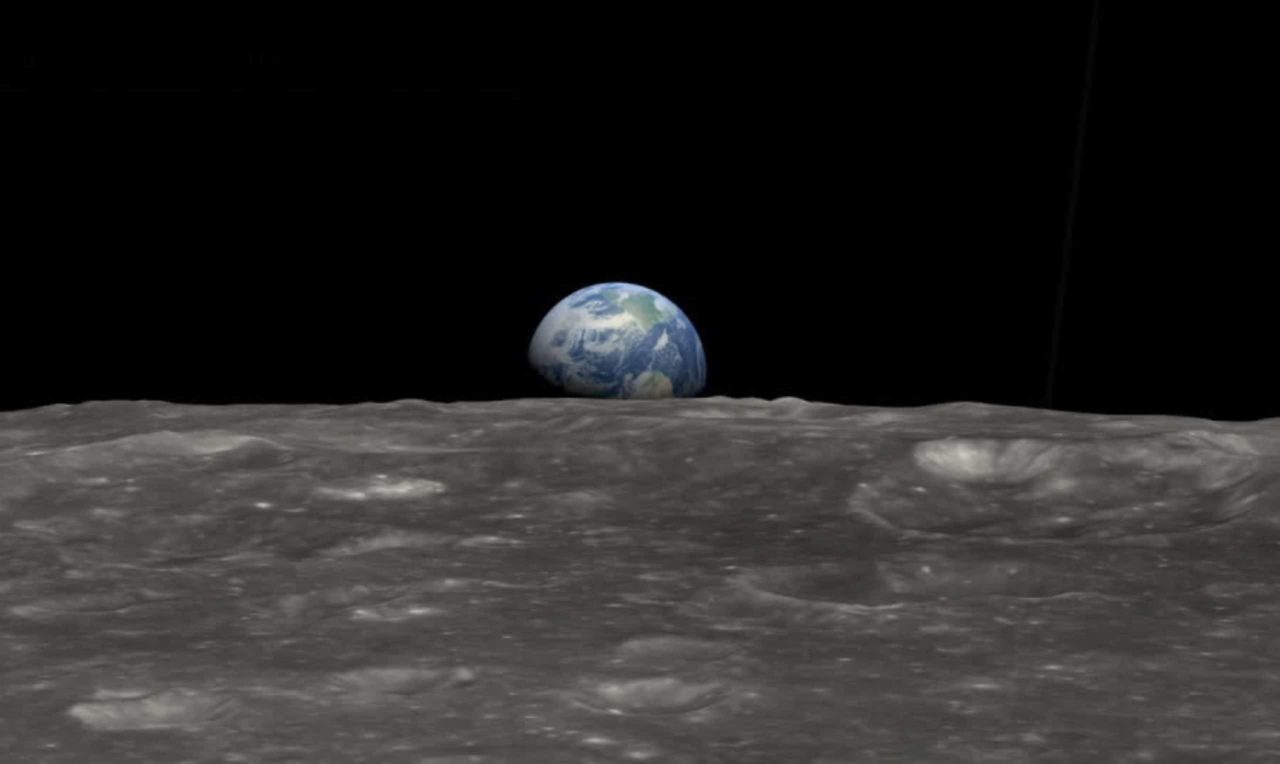
It’s up to us
By Michael J. Caduto
It was one of our country’s most turbulent years. Demonstrations and riots demanding equality were staged nationwide. Gunshots rang out. World leaders threatened military force to control protesters while millions of sympathizers joined demonstrators on the front lines. A foreign war dragged on, seemingly with no end. Daily news reports shared heart-rending stories of thousands of people who had died. Political upheavals wracked the country as a contentious presidential election came down to the wire.
This could easily describe 2020, but these events occurred more than 50 years ago. In 1968 the United States was riven by divisive nationwide protests against the Vietnam War. Our sense of civility and national security was rocked by the assassinations of Martin Luther King, Jr. and Robert F. Kennedy. After a tumultuous year, on Dec. 24, 1968, people from across the land stared at their television screens in a rare unifying moment, mesmerized as Apollo 8 astronauts Jim Lovell, Bill Anders and Frank Borman became the first humans to leave low Earth orbit and circle the moon.
During this flight, Anders took several now-famous photographs of Earth rising above the cold lifeless lunar horizon. The juxtaposition of our blue home planet next to the moon’s stark cratered surface, and surrounded by the vastness of space, presented humankind with a perspective that emblazoned in our consciousness a symbol of how finite and fragile Earth really is.
Earlier in 1968 Paul Ehrlich had published “The Population Bomb,” a seminal book that warned of the environmental impacts caused by overpopulation—at a time when the global population was less than half of today’s nearly 8 billion people. Stewart Brand’s Whole Earth Catalog began publication in the autumn of 1968 and quickly became a bible for everything from green products and engineering plans to grassroots wisdom that fed a passion for taking personal control away from the establishment and going back to the land. (In contrast, 2020’s exploding interest in self-sufficiency and growing one’s own food has been a response to widespread food insecurity brought on by economic disruptions from the coronavirus pandemic.)
History does not repeat itself, but the core issues with which humankind struggles, and the ways in which we tend to respond, do not fundamentally change over time. Environmentalists celebrated in 1972 when—following a decade of litigation and activism inspired by the 1962 publication of Rachel Carson’s “Silent Spring”—the U.S Environmental Protection Agency finally banned the use of DDT. As a result of these regulations and decades of hard work by wildlife biologists working to restore wildlife populations, numerous species of birds that were teetering on the brink of endangerment and extinction were brought back from the precipice, including the bald eagle and osprey.
Did we learn from DDT? Consider the current widespread use of neonicotinoid pesticides, which were developed to replace carcinogenic organophosphates like malathion and diazinon. “Neonics” have now become the DDT of the 21st Century, polluting the environment and causing catastrophic declines in the populations of honeybees, bumblebees, solitary bees and other insect pollinators that play essential roles in the functioning of healthy ecosystems and in the pollination of most fruits and vegetables. The European Commission has banned most neonics, but the U.S. EPA refuses to do so.
Neonics are just one example of how, when it comes to the environment, we often make the same mistakes through time. The issues we face today—ranging from air and water pollution (including discarded plastic) to deforestation, food waste, climate change and loss of biodiversity—have been with us in one form or another for decades, and often for centuries.
The critical question at the dawn of 2021 is: What can we do—individually and collectively— to ensure that Earth, as we know it, keeps rising? We don’t need resolutions at the turn of the year, we need resolve to make commitments and take action. Only then may future generations look back at the history we are now creating and truly be able to say the only reason we’re here today is because back in 2021—when faced with a global pandemic in the midst of climate change—humankind found the will, the wisdom and the way to stand up and do something about it.




